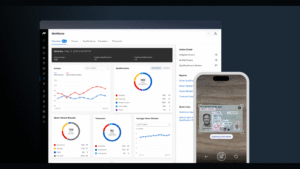In the ever-evolving healthcare landscape, maintaining financial stability is a significant challenge. Data analytics offers a strategic advantage, enabling organizations to make informed decisions and adapt to changing market conditions effectively.
As the healthcare industry faces continuous changes, the importance of financial resilience cannot be overstated. Organizations must navigate complex regulatory environments and economic fluctuations, making strategic planning essential. Data analytics provides the tools needed to analyze vast amounts of information, offering insights that can guide decision-making processes. By understanding patient demographics, resource allocation can be optimized, ultimately improving service delivery and financial outcomes. Additionally, the role of health care insurance in this context is crucial, as it directly impacts financial strategies and patient care models.
The Role of Data Analytics in Decision-Making
Data analytics plays a crucial role in enhancing decision-making capabilities within healthcare organizations. By analyzing data trends, you can identify areas for improvement and potential risks. This proactive approach allows for better resource management and operational efficiency. Additionally, data analytics helps in understanding patient needs, leading to improved service offerings and patient satisfaction. As a result, organizations can achieve better financial performance and maintain a competitive edge in the healthcare landscape.
Implementing data analytics solutions enables organizations to anticipate potential challenges and make informed decisions. This foresight is invaluable in managing resources effectively and minimizing financial risks. By leveraging data insights, you can develop strategies that align with organizational goals and enhance overall performance. These improvements often have a direct impact on employee benefits and contribute to better quality of health coverage for both staff and patients.
Machine learning algorithms and predictive analytics have become increasingly vital in healthcare decision-making processes. These advanced tools can analyze historical data to forecast patient admission rates, resource utilization, and revenue cycles with remarkable accuracy. By implementing these sophisticated analytical methods, healthcare organizations can optimize staffing levels, inventory management, and financial planning. This data-driven approach not only reduces operational costs but also supports the Behavioral Health and Well-Being of Employees by ensuring a balanced and effective work environment.
Building Financial Resilience in Healthcare
Financial resilience is essential for healthcare organizations to thrive in a dynamic environment. By integrating data analytics into financial planning, you can identify potential vulnerabilities and develop strategies to mitigate them. This proactive stance ensures that organizations are well-prepared to handle economic uncertainties and regulatory changes. Data analytics provides a comprehensive view of financial operations, enabling you to make informed decisions that support organizational stability and growth in the ever-evolving healthcare landscape.
Moreover, data analytics facilitates the identification of cost-saving opportunities, allowing organizations to optimize their financial resources. By analyzing spending patterns and operational efficiencies, you can implement measures that reduce costs without compromising service quality. This approach not only enhances financial resilience but also improves the overall quality of health coverage and strengthens employee benefits offerings, which can improve retention and satisfaction among staff.
Future Trends in Healthcare Finance
The future of healthcare finance is closely linked to advancements in data analytics technology. Emerging trends such as artificial intelligence and machine learning are set to revolutionize financial planning and risk management. By staying informed about these developments, you can position your organization at the forefront of industry advancements. Investing in advanced technologies and building a skilled workforce capable of interpreting complex datasets will further enhance your capabilities in navigating financial challenges.
Furthermore, data-driven planning supports long-term initiatives focused on the Behavioral Health and Well-Being of Employees, ensuring that financial strategies align with the broader goals of organizational sustainability and workforce care.
To effectively leverage data analytics, consider adopting technologies that integrate seamlessly into existing systems. This integration will enable you to harness the full potential of data insights, driving strategic decision-making and operational efficiency. Additionally, fostering a culture of continuous learning ensures that your team remains adaptable and responsive to changes within the industry. By prioritizing education and training programs focused on emerging technologies, you empower your organization to thrive amidst evolving market conditions. Staying updated with health insurance trends is also vital in adapting to these changes and ensuring financial stability.
Article received via email































